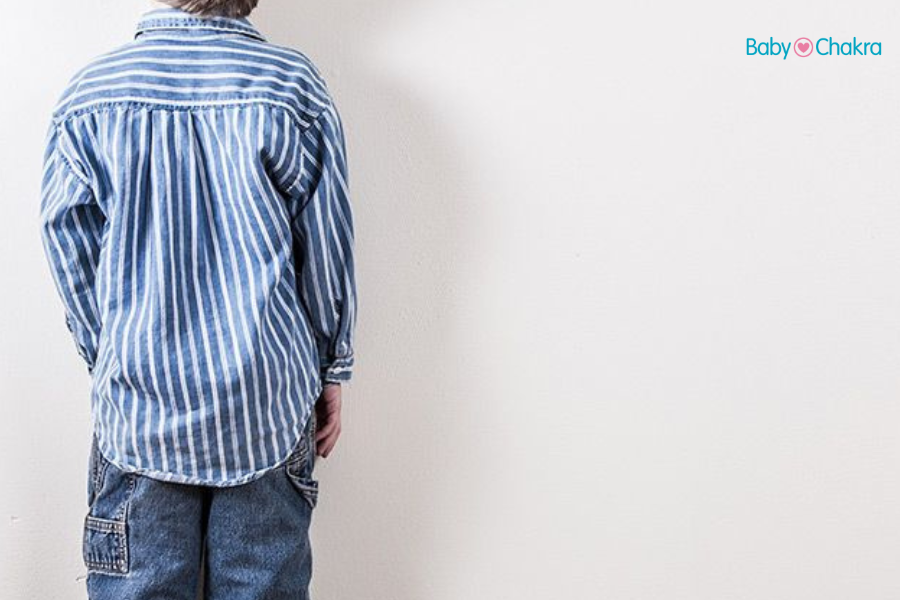
Is It Normal For My 5-Year-Old Son To Get An Erection?
12 Apr 2023 | 5 min Read
Manisha Pradhan
Author | 1053 Articles
Erections are a normal and natural bodily function for males of all ages. Even toddlers as young as 4 to 5 years can experience an erection in certain situations. However, the topic of erections in little boys can be a sensitive and sometimes uncomfortable one to discuss.
It’s important to understand that an erection in a little boy does not necessarily indicate sexual arousal or lead to ejaculation. Here are the reasons why little boys may experience erections and what parents and caregivers can do to support them.
What Is An Erection?
An erection is a physiological response that occurs when the penis becomes engorged with blood, causing it to become firm and erect. Erections typically occur as a result of sexual arousal or stimulation, but they can also occur spontaneously or as a result of physical activity or pressure on the genitals.
Why Do Little Boys Get An Erection?
Erections in little boys are quite common and normal. Babies can even experience erections in the womb or shortly after birth. As boys get older, they may experience erections during diaper changes, baths, or when their genitals are touched or stimulated in any way.
There are a few reasons why little boys may experience erections:
Physical stimulation
Touching, rubbing, or pressing on the penis can cause an erection in little boys, just as it can in adult males.
Hormones
Even young boys have small amounts of testosterone in their bodies, which can cause erections.
Sleep
It’s not uncommon for boys to experience erections during sleep, particularly during the rapid eye movement (REM) phase of the sleep cycle.
Full bladder
A full bladder can put pressure on the penis and cause an erection.
It’s important to note that erections in little boys are not necessarily a sign of sexual arousal or inappropriate behaviour. They are simply a normal part of a boy’s developing body.
How Should Parents Respond To A Little Boy’s Erection?
If you’re a parent or caregiver who has witnessed a little boy experiencing an erection, it’s important to respond in a calm and supportive manner. Here are a few tips:
Avoid shaming or scolding
Erections are a natural bodily function, and little boys have no control over when they happen. Shaming or scolding a child for having an erection can create feelings of shame, guilt, or confusion.
Provide privacy
If a little boy experiences an erection in a public place, try to find a private area where he can adjust himself or wait for the erection to subside.
Teach appropriate boundaries
While erections themselves are not inappropriate, it’s important to teach little boys appropriate boundaries when it comes to touching themselves or others in their genital area.
Normalise the experience
Letting little boys know that erections are a normal part of growing up can help them feel less embarrassed or confused when they experience them.
Seek medical help if necessary
While erections in little boys are usually harmless, if they are accompanied by pain, swelling, or other symptoms, it may be a sign of an underlying medical condition. If you’re concerned, it’s always best to consult with a healthcare provider.
What Are The Signs Of An Abnormal Erection In A Little Boy?
While erections in little boys are usually harmless and normal, there are certain circumstances where they may be cause for concern. Here are a few signs that a little boy’s erection may be abnormal:
- Pain or discomfort: If a little boy is experiencing pain or discomfort during an erection, it may be a sign of an underlying medical condition.
- Persistent erections: If a little boy is experiencing erections that last for an extended period (more than an hour), it may be a sign of priapism, a condition that requires urgent medical attention.
- Abnormal curvature: If a little boy’s penis appears to be curving abnormally during an erection, it may be a sign of Peyronie’s disease, a condition that can cause painful erections and difficulty with sexual function.
- Discharge or swelling: If a little boy is experiencing discharge or swelling along with an erection, it may be a sign of an infection or other medical condition.
If you notice any of these signs, it’s important to consult your doctor as soon as possible.
Erections in little boys are a normal and natural part of growing up. By responding in a supportive and non-judgmental way, parents and caregivers can help little boys feel more comfortable with their developing bodies and provide them with the tools they need to navigate their sexuality in a healthy and positive way.
If you have any concerns about your child’s erections, be sure to consult a doctor for guidance and support.
Try these natural hygiene products for toddlers:
Also Read:
Is It Safe To Use An Essential Oils Diffuser Around Babies?
Cover image source: freepik
A


Related Topics for you
Suggestions offered by doctors on BabyChakra are of advisory nature i.e., for educational and informational purposes only. Content posted on, created for, or compiled by BabyChakra is not intended or designed to replace your doctor's independent judgment about any symptom, condition, or the appropriateness or risks of a procedure or treatment for a given person.


